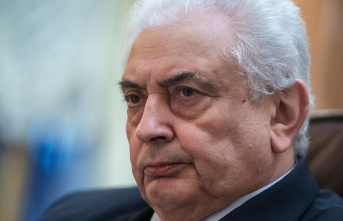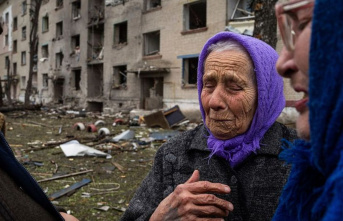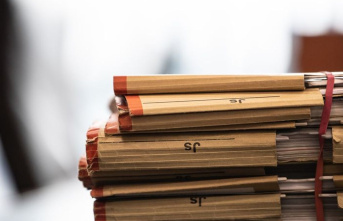The EU has imposed sanctions on Iran's moral police and more than a dozen other individuals and organizations. This was announced by the representation of the member states on Monday on the sidelines of a meeting of EU foreign ministers in Luxembourg. The punitive measures are in response to the death of 22-year-old Iranian Mahsa Amini and the brutal repression of protests. The Basij militias, the so-called law enforcement forces and the cyber defense command of the Islamic Revolutionary Guard Corps, are also affected.
"We define those who are responsible for the fact that people, especially women, who did nothing but fight for their rights, that they died," said Federal Foreign Minister Annalena Baerbock on the sidelines of EU consultations in Luxembourg.
The sanctions provide for entry bans to be imposed. In addition, the assets of those affected in the EU will be frozen.
Iran's foreign ministry spokesman Nasser Kanaani condemned the EU's actions. "We advise the EU not to make irrational and interfering decisions," he said in Tehran. He warned against a corresponding reaction by his country.
Allegations of unlawful violence against women
According to the EU Official Journal, the Iranian moral police are specifically accused of unlawful violence against women for not complying with Iranian laws on the wearing of the Islamic hijab, as well as sexual and gender-based violence. The task force also allegedly carried out arbitrary arrests and detentions and used excessive force and torture.
Regarding the death of Mahsa Amini, the official gazette states that the young woman was arbitrarily arrested on 13 September for allegedly not wearing her hijab properly. Then she was taken to the vice squad headquarters for an "education and orientation course." According to reliable reports and witnesses, she was brutally beaten and ill-treated, eventually leading to her death on 16 September. The police deny this account to this day.
Since the 22-year-old's death, there have been protests in Iran, with security forces repeatedly using massive amounts of violence against demonstrators. The EU has accused the Basij militias of injuring and killing several demonstrators.
Iran's moral police, the so-called "Gascht-e Erschad" (instructional patrol), is a special police unit that enforces Islamic dress codes. Even though there were groups with similar tasks after the Islamic Revolution in 1979, the unit was only founded under the presidency of hardliner Mahmoud Ahmadinejad (2005-2013). They patrol the streets of Iran with small police minibuses and crack down on violations of the headscarf requirement in particular.
After the election of incumbent President Ebrahim Raisi, controls were tightened. The morality police recruit their members from among the police and the militias. Especially women with chaddors, long black cloths that cover the body except for the face, go on the patrol. Influential supporters of the Iranian Revolutionary Guards are also in the top positions. They report to the Interior Ministry and the religious leader Ali Khamenei.
According to Baerbock, further punitive measures by the EU against Iran are already being prepared. Given what is happening in Iran, more sanctions packages will follow, she said.
Specifically, Baerbock also addressed the devastating fire at the weekend in the notorious Ewin prison. According to the latest official Iranian information, at least eight prisoners died and dozens of other detainees were injured. Eyewitnesses reported that loud explosions and shots were heard in the detention center on Saturday evening. According to this, a fire is said to have burned until midnight, until the early morning smoke rose.
The prison in northern Tehran is considered nationwide as the place for ill-treatment and torture of political prisoners in particular. Demonstrators are also being held there because of their participation in the system-critical protests of the past four weeks - as are dual nationals who have another citizenship in addition to Iranian citizenship. The US sanctioned the prison and its management in May 2018 for "serious human rights violations".












